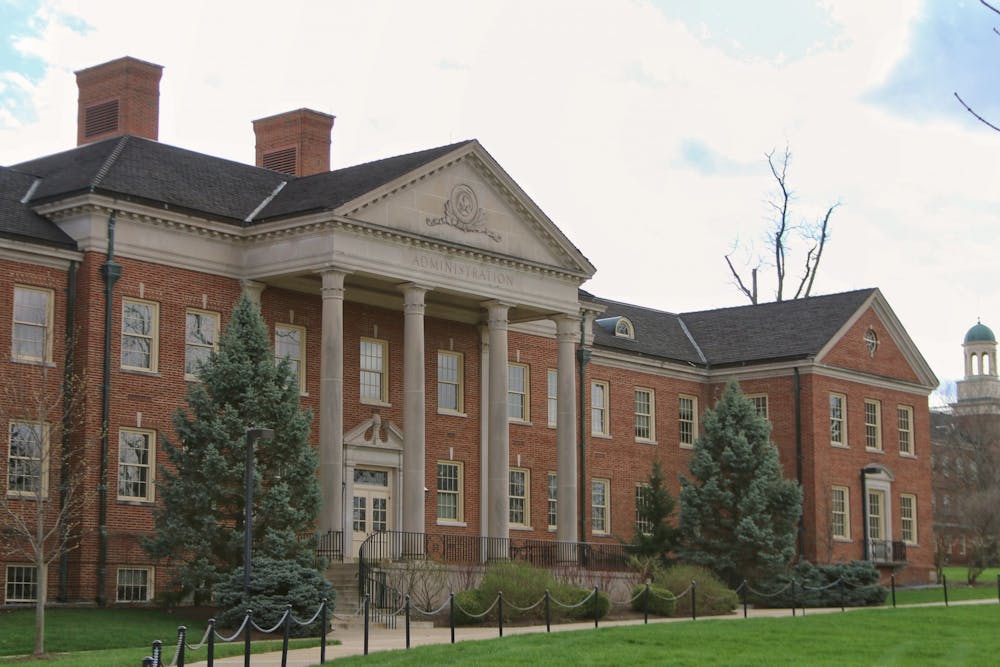At yesterday's University Senate meeting, Miami University Provost Jason Osborne said “no decision has been made,” in regard to a return to in-person classes on Sept. 21, as Miami faces at least a $50 million revenue decline for the semester.
A previous email from President Greg Crawford stated that a decision about the return would be communicated no later than Sept. 9.
Student cases have risen to 833, but during the meeting, Osborne said no single number or metric is being used to determine the fate of an in-person return. Rather, the university is considering a combination of different metrics including positive case rates, positivity trends, on-campus quarantine capacity and the university’s ability to deliver services.
“Universities tend to be very fragile operations,” he said.
Osborne said that if the university does, in fact, return to in-person classes, it will still face a revenue decline of around $50 million. If classes remain online for the entire semester, that number rises to $90 million.
And if students stay remote for the entire school year, Miami could face a loss of nearly $180 million.
Despite these factors, Osborne said health is still the driving force of university decisions.
“We are prioritizing health and safety,” Osborne said. “We are not prioritizing anything else.”
To this end, Osborne said if Miami decides to bring back on-campus students and a large coronavirus outbreak occurs, the university would most likely keep students in their residence halls to avoid the spread of the virus to students’ hometowns upon a campus closure.
In an email sent to all students scheduled to move into residence halls before next Wednesday, Vice President for Student Affairs Jayne Brownell wrote that anyone who is living in a dorm before Miami announces its decision about classes will be allowed to stay in their on-campus residence. This includes all resident assistants.
Brownell said this rule could change if the state mandates a campus closure sometime in the future. She also said if there ends up being only a few hundred students on campus, Residence Life may consolidate the dorms to conserve resources.
Brent Shock, vice president of enrollment management, said that as of Aug. 21, the deadline for students to declare their fall semester mode of delivery, only 16% of students had decided to stay remote for the entire semester. Additionally, 7% of incoming first-years deferred their enrollment until the spring or next fall semester.
Enjoy what you're reading?
Signup for our newsletter
Shock later said that his office is working one-on-one with students who wish to change their mode of delivery decision.
Vice President for Student Affairs Jayne Brownell said the majority of students are complying with the university’s regulations. She said that, like with all disciplinary issues, there is a small group of students not following guidelines and spreading the virus.
“I do not want to spread this idea that we have this problematic student body,” Brownell said.
Osborne said that Miami is doing far more comprehensive testing than some other universities, since off-campus students are included in testing. Brownell said Miami does not have the same resources as The Ohio State University, so making broad comparisons is not logical.
“This is not an apples-to-apples comparison,” Osborne said.
If Miami decides to not bring back on-campus students and keep with digital learning for the semester, Osborne said Miami will be one of the only Ohio universities thus far to make that decision.




